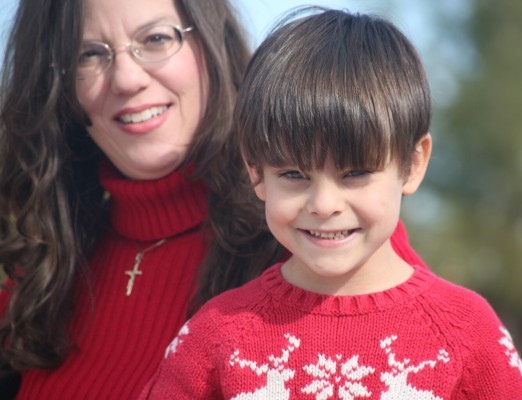 Copyright 2016 Sherry Boas. All rights reserved.
Copyright 2016 Sherry Boas. All rights reserved.
Back in the day, when I was a reporter at a local daily newspaper, I got a call from a social worker who was trying to find an adoptive family for a couple of kids whose mother was about to pass away. This mom wanted to find her children a home before she died, and she thought a newspaper article could help get the word out.
It was the kind of story I was always drawn into, so it didn’t take much to convince me. I was so taken in, I even asked the social worker about the possibility of adopting the two boys myself. She was not encouraging.
“These are two very difficult little guys,” she said. “The sandwich has to be cut in exact perfect triangles and the socks can’t have any bumps or wrinkles inside the shoes. You get the picture. Life is quite a challenge with them. You’d have to be Mother Teresa to handle these kids.”
I thought to myself, “I love Mother Teresa. Of course, I can’t be Mother Teresa. But why can’t I be like Mother Teresa?”
Isn’t that one of the reasons we canonize saints? To provide inspiration for our own lives? To be encouraged on our path to holiness and our lifelong pursuit of rising above ourselves? Why couldn’t I adopt those kids?
After a minute or two of pondering, I decided I probably wasn’t cut out for such a life. But I felt good that I could write a nice article and help the kids find someone who was equipped to give them a happy life.
Wouldn’t you know it, a decade later, God sent us a baby boy who would grow into just that kind of kid. Things have to be a certain way with John. Changes are unacceptable. Deviations unwelcome. Itchy tags at the neck intolerable. A drop of water on the sleeve insufferable. He needs someone to redirect his attention to his work no less than twenty times in the course of one math problem. You might already know him from my previous columns as the preemie baby who would only take a bottle from me and grew into the kid who got his elbow caught in the rack on the back of the pew, once insisted I try to mend his shredded security blanket, and daily enlists my aid in putting on his socks because he finds bumps at the toe unbearable.
You also might have noticed he is one of the greatest joys of my life.
He is one of the sweetest kids you will ever meet. One of the most fascinating conversationalists. A faith-filled, tender-hearted, generous soul.
That social worker was wrong. You don’t have to be Mother Teresa to parent a difficult child, which is good, because I have come to believe that all children are difficult. No, you don’t have to be Mother Teresa. You just need a lot of her help.
John was born fifteen weeks early with a multitude of health problems. I am certain it was Mother Teresa, from her vantage point in Heaven, who helped arrange for us to adopt him when he was just a couple of pounds, lying in the incubator surrounded by life-saving tubes and cords. And it was Mother Teresa who interceded to keep him alive. Within the time we were praying a novena for her intercession to save his life, John’s liver made a medically inexplicable recovery. More about that in a future column. But for now, suffice it to say, the person I thought I could never be is the person I have apparently become. Somehow I have been able to handle a house full of special needs brought to us through the blessing of adoption, including my 13-year-old daughter with Down syndrome.
I wish I could say I do it all with the grace of Mother Teresa. But the fact I am doing it at all is cause for surprise and jubilation. And an indication that maybe we sell ourselves short a little too often.
Copyright 2016 Sherry Boas
About the Author
Sherry Boas
Sherry Boas is author of the Lily Series, which has grown into a beloved collection of novels whose characters’ lives are unpredictably transformed by a woman with Down syndrome. The former newspaper reporter and special needs adoptive mother of four is also author of A Mother's Bouquet: Rosary Meditations for Moms, Billowtail, Victoria's Sparrows, Little Maximus Myers, Archangela's Horse, and Wing Tip. She runs Caritas Press from her home office in stolen moments between over-cooking the pasta and forgetting to dust the chandelier. Find her work at CaritasPress.org.


.png?width=1806&height=731&name=CatholicMom_hcfm_logo1_pos_871c_2728c%20(002).png)
Comments